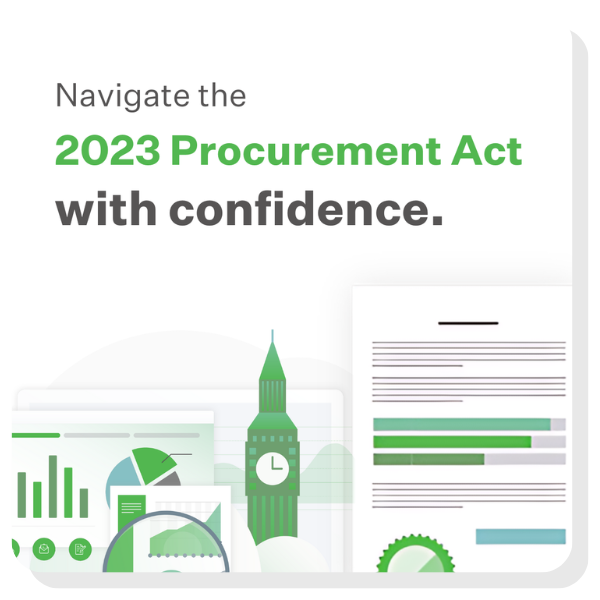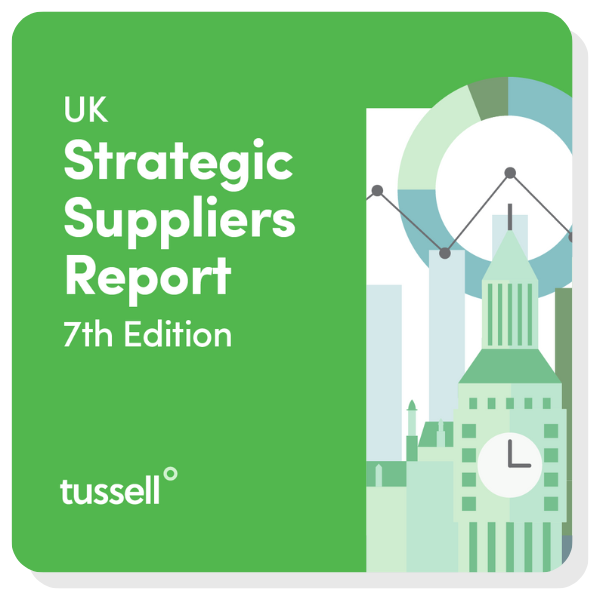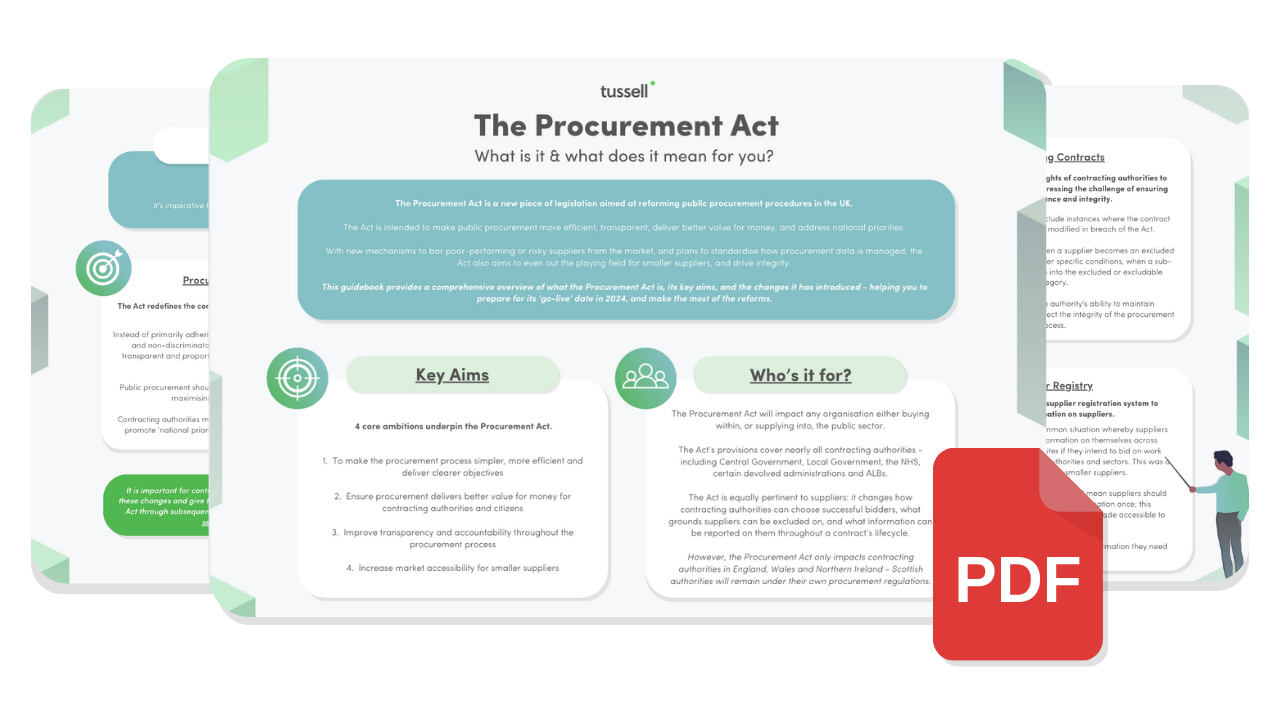The Provider Selection Regime (PSR) introduces new rules for healthcare service arrangement in England by relevant authorities, including NHS England, integrated care boards, NHS trusts, foundation trusts, and local/combined authorities (PSR excludes goods and non-healthcare services procurement by these authorities).
The PSR looks set to bring in significant changes for both suppliers and buyers alike but it will demand more of a response, and action, from healthcare suppliers.
In this blog, we look at the ideas behind the PSR, its aims and how these may affect healthcare suppliers so that you can get more informed and get ready for the new regime, ahead of time.
Skip ahead to read about:
💡 Background & Context
The PSR has come about following The Department of Health and Social Care's consultation in February 2022 on regulations to create a new approach to healthcare service procurement in England, aiming “to move away from the expectation of competition in all circumstances and towards collaboration across the health and care system”
The primary goal of the regime is to ensure decisions regarding the selection of healthcare providers are made in the best interests of patients, taxpayers, and the population as a whole.
The process emphasises transparency, proportionality, and defensibility. This overarching objective would be underpinned by decisions made on a broad base of criteria including:
-
Quality & innovation
-
Value
-
Integration
-
Collaboration & service sustainability
-
Social value
-
Opportunities to increase access to healthcare, reduce health inequalities and disparities, and promote patient choice
The PSR states that it aims for transparent, flexible healthcare procurement, fostering integration and stable collaborations. Compliance involves evidencing decisions, record-keeping, transparency notices, and competitive tendering where beneficial. PSR, under Health and Care Act 2022 regulations, replaces existing procurement regulations.
Who's it for?
-
Integrated care boards (ICBs) when commissioning healthcare services for the purposes of the health service (whether NHS or public health)
-
NHS England when commissioning healthcare for the purposes of the health service (whether NHS or public health)
-
Local authorities and combined authorities when arranging healthcare services as part of their public health functions
-
Local authorities and combined authorities when arranging NHS healthcare services as part of section 75 partnership arrangements with the NHS
-
NHS trusts and foundation trusts when arranging the provision of healthcare services by other providers
✍️ What are the PSR's aims & key principles?
The Provider Selection Regime aims to simplify the continuation of effective service provision arrangements in healthcare. It focuses on maintaining existing arrangements if they are successful and valuable for patients, taxpayers, and the population.
When changes are necessary, the regime aims to ensure a fair and transparent decision-making process, including the possibility of competitive tendering when appropriate. The regime also acknowledges that certain healthcare services with interdependencies may not require competitive tendering.
The Health and Care Bill, which was recently enacted, grants the powers to establish this regime. If the PSR passes, the regime's details will be outlined in regulations and guidance, supported by engagement and learning materials.
The regime will be applied with 6 key principles behind it:
1️⃣ Governance: Decision-making bodies will have to integrate the regime into their existing governance structures. The regime doesn't mandate specific organisational arrangements for decision-making, committees, or levels of authority. Managing conflicts of interest will also be addressed.
2️⃣ Planning: Effective application of the regime will require decision-makers to have a clear understanding of the services they intend to arrange and the outcomes they seek. This understanding must be established through routine annual planning activities to align decisions with these intentions.
3️⃣ Provider Insight: The regime hopes to shift focus away from reliance on market-based tender mechanisms. Decision-making bodies should gain in-depth knowledge of relevant healthcare providers. This involves understanding their capacity to serve the local, regional, or national population, various service delivery approaches, capabilities, limitations, and connections with the broader system.
4️⃣ Equality & Inclusion: Decisions should be impartially applied across different types of providers, including those from VCSEs and independent sectors, as well as NHS trusts and foundation trusts.
5️⃣ Proportionality: Decision-making bodies should adopt a proportionate approach to applying the regime due to the varying scale, scope, and costs of healthcare services. While maintaining defensible decisions, resources allocated for decision-making can be adjusted according to the size of the service.
6️⃣ Other Legal Obligations: The introduction of the PSR will not exempt relevant authorities from complying with other legal obligations, including acts like the National Health Service Act 2006, the Equality Act 2010, and more. While the guidance doesn't dictate how to fulfill these obligations, decision-makers must align their actions under the regime with these requirements.
❓ How might it affect you?
If and when enacted, the PSR will bring changes to how healthcare suppliers should approach healthcare authorities, and evaluate their priorities.
From the current version of the Bill and its surrounding documents, we have been able to pull together some implications that the PSR looks set to have on healthcare suppliers.*
*Please note these implications are based on the current version of the PSR and are subject to change as the PSR progresses.
⚖️ Decision-making
The PSR intends for decision-making bodies to consider all important criteria of the regime when making decisions. They must be able to provide justifications for their decisions regarding service arrangements based on these criteria and maintain a record of this process.
Therefore, healthcare suppliers will need to adapt their decision-making processes to align with these new criteria and consider the Equality Act 2010 to ensure that they have considered equality implications.
Suppliers will also need to justify how they have met the criteria of the PSR.
👁️ Transparency
Decision-makers will be required to publish notifications of their decisions, making the outcomes of the decision-making process publicly accessible. This could influence how suppliers approach their interactions with decision-makers and how they communicate their services.
Healthcare suppliers will need to maintain comprehensive records of their decisions. This might involve keeping detailed documentation of the decision-making process, the rationale behind decisions, and any conflicts of interest.
Suppliers may need to plan for standstill periods and feedback collection during new service introductions, changes, or contract renewals. This means they will need to be prepared for potential delays in finalising decisions as these periods are observed.
🔎 Scrutiny
Suppliers need to be aware of and prepared for a high level of scrutiny every step of the way for decisions related to the PSR.
For example, the aforementioned standstill period also works in the favour of suppliers as it allows them to raise concerns about the misapplication of the PSR. Suppliers who believe that decisions were not made fairly or in line with the criteria can voice their concerns.
Alongside this, suppliers may be required to review this process by providing supplementary information and addressing concerns. Therefore, suppliers should be prepared to have their decisions re-evaluated if credible representations are received.
❗ Special situations
Healthcare suppliers will need to be aware of the specific guidance for emergency situations. While the majority of the PSR process will follow a structured approach, exceptions might be necessary in cases of immediate safety and care risks.
Suppliers may need to understand how these exceptional situations could impact their obligations and involvement in decision-making.
It is important to remember that the PSR has not yet finished the proper legislative process. Until it completes the legislative process and is enacted into law, the current regulations and laws on procurement processes remain in place.
The Department of Health and Social Care plans to enact the PSR by late 2023, with implementation details communicated by NHS England once announced. Until then, authorities should follow current rules (Public Contract Regulations 2015 and Procurement, Patient Choice, and Competition Regulations 2013) for healthcare contracts.
All we can do now is monitor the development and progression of the Bill and try to prepare in the best way possible.
Conclusion
In summary, healthcare suppliers will likely need to adapt their decision-making processes, communication strategies, and documentation practices to align with the changes introduced by the PSR.
They should also be prepared for increased transparency, potential delays during standstill periods, and the possibility of their decisions being subject to scrutiny and review. Adapting to these changes will likely require careful consideration of the PSR criteria, the Equality Act, and the new processes outlined in the guidance.
Keep an eye out for updates on the PSR on the NHS website and other official government communication lines, and get your head around the changes the PSR may bring ahead of time.
*
To find out more about the public sector healthcare market, check out our recent Healthcare Titans Report - our list of the top 150 healthcare suppliers by public sector revenue in FY 2021/22. It includes everything you need to know about the top suppliers, buyers and frameworks in the sector.
Tussell's market intelligence platform is already being used by healthcare suppliers to track new opportunities, dig into their target accounts, see who their competitors are working with, and understand which frameworks they should get onto to win more work.
Book a personalised demo with our team to see how Tussell can unlock public sector insights and opportunities for your business.

















